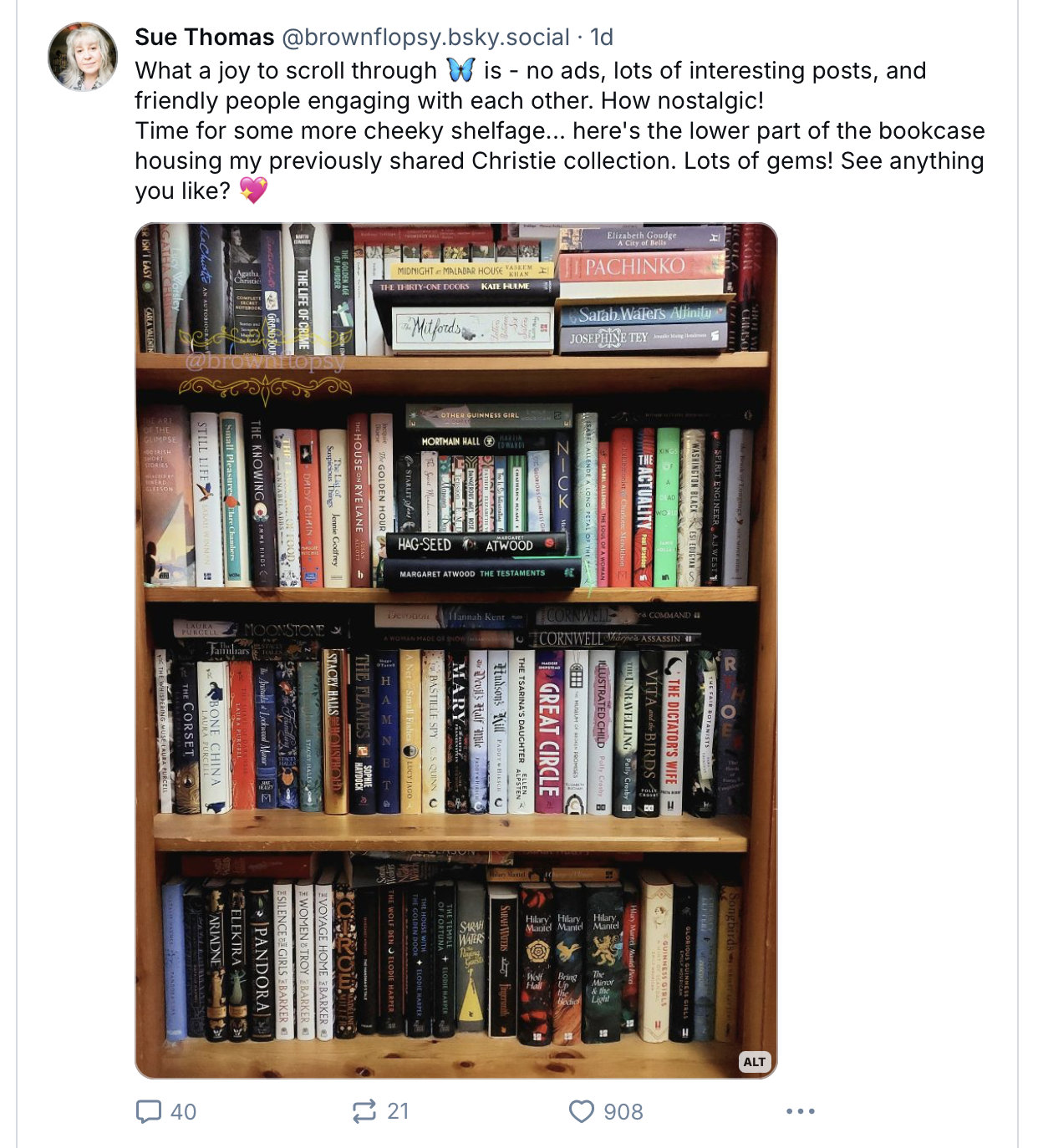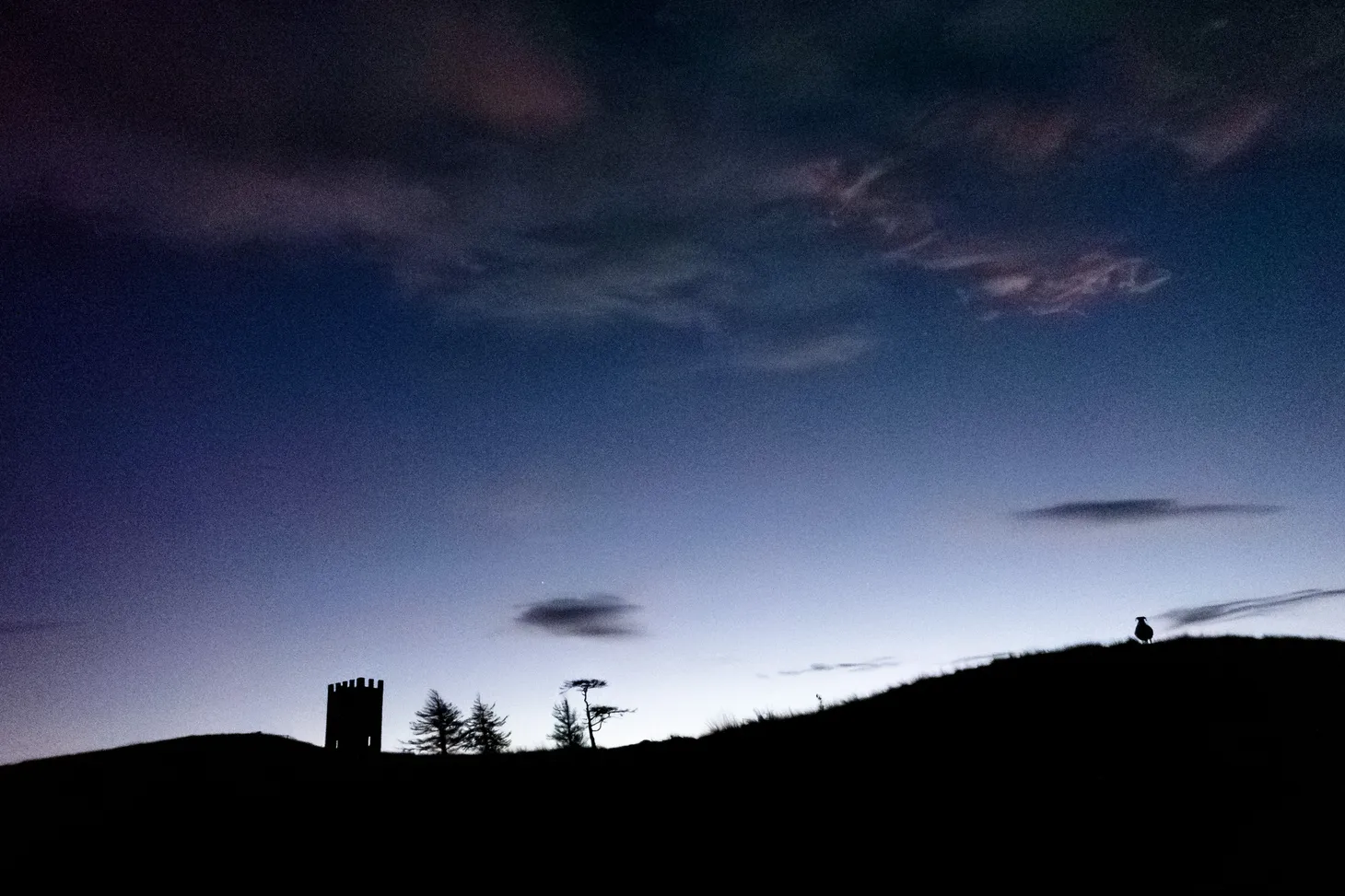I think Bluesky is a trap

People are leaving X en masse, and looking to Bluesky for a refuge. But is it a breath of fresh air or just another trap?
Readers will be well aware that my relationship with Twitter (now X) followed a rocky trajectory. I started finding it problematic on a personal level in about 2017, and it started to get truly intolerable for me a year or so later. I then spent a couple more years worrying about what to do. Should I stay or should I go? What would happen if I left? Surely it was expected of me to have a presence there? I finally made the decision to leave Twitter in late 2022, and remain very grateful for this decision.
From my post back then:
Well, I did it. After years of back and forth over my love/hate relationship with Twitter, I’ve pulled the plug. I have no plans to delete my account – I still feel the need to have a nominal passive presence on there – but I have no plans to tweet any more or read my timeline.
Why? The Elon Musk takeover has revealed a company and website in freefall. I object to how the company is being run, and I think that the website will rapidly implode now that entire teams have been decimated. In fact, it’s imploding right now – today I have seen a huge exodus of people I follow over to Mastodon.
In time I did actually delete my account, and Mastodon never really took off as I thought it might (I no longer have a presence there either). But, although I hate to say 'I told you so', well, I told you so. It took a bit longer to implode than I expected back then, but Elon Musk's mismanagement of Twitter has killed it off.
In the years since I left, I've heard from more and more of my friends and colleagues who have hit their own personal breaking points. Even Chris Townsend, basically the central pillar of the British outdoor community, deleted his account in August. And, since the American election, I've seen an explosion of news stories calling the 'end of X'. Here's just one of many.
None of this is a surprise to me. The only thing I find surprising is just how long it has taken some people to break free from such a toxic, morally bankrupt and structurally hostile environment. Of course, there were always benefits; I find the push-pull of principles and practicality so interesting in these matters. It's an equation, isn't it? While the benefits of participating outweigh the downsides, principles can be sidelined or ignored.
The thing is, plenty of people found Twitter a nightmare for years before Elon Musk took over. For me, the Elon Musk transition was just the straw that broke the camel's back. It wasn't even the most important factor. People were calling it a 'hellsite' long before Elon Musk came along. In this article from 2022, Kyle Chayka writes that 'many of its users [...] habitually refer to it as the “hellsite.” On the one hand, it is difficult to imagine Twitter getting any worse, whatever changes Musk makes.'
Oh boy, it got a lot worse.
Now, in November 2024, Elon Musk has turned X into an openly authoritarian project and it seems pretty clear that he used it to help boost his useful idiot Donald Trump into the presidency. Suddenly, lots of people are realising that they have principles after all! Could that be because the slow exodus away from X has sufficiently eroded the value of its network effects? Cynicism aside, I was pleased to see that The Guardian has decided to leave X. Turns out it is possible even for major news organisations to have principles, even if it takes a while for them to get there.
Enter Bluesky
In such circumstances, people are looking for an alternative to X. I get it! They want the good old days back – the sense of a global consciousness, of a humming bustling online town square. Possible alternatives include Mastodon (utopian but too techy for most people), Threads (it's owned by Meta, which makes it almost as morally icky as X), and Bluesky.
On the face of it, Bluesky looks really attractive. It's basically a reset back to where Twitter was before it got comprehensively ruined, and was created by Jack Dorsey, former head of Twitter. Many millions of users have joined since the election. The vibe, as I understand it, is something like this: 'Let's just turn back the clock to before the Elon Musk craziness kicked off and pretend that none of it ever happened'.
There's a useful primer here on the BBC website. To me, the really interesting bit is under the headline 'How does Bluesky make money?' The answer, predictably, is that this has yet to be decided. It started off with the usual round of funding from investors and VCs, and Bluesky has stated that it wants to avoid advertising. So far so good, because I believe that the advertising business model was responsible for a good chunk of the structural hostility and toxicity of the old Twitter.
You can read Bluesky's plans for a sustainably open source network here, and I must admit that I'm liking a lot of what I read. Particularly this:
Traditionally, social media companies have supported business costs through advertising. While advertising can subsidize services to make them free to the end user, it comes with negative long-term consequences like incentivizing platforms to lock their users in. In the business of advertising, where social media companies exchange user data to serve ads to specific audiences, users become the product.
It's so refreshing to see this out in the open. They plan to make money through paid services, not surveillance capitalism like every other commercial social network. But. There's a but coming up, and I'll come back to this soon.
In 'Bluesky's success is a rejection of big tech's operating system', Brian Merchant claims that this is a countercultural reflex against the increasingly human-hostile internet. And I very much want to believe him.
The online world has become so hostile to users that Bluesky’s pitch of ‘here is a straightforward feed of text-based user-generated posts that we promise not to mess with’ is revelatory. Its scaling model and raison d’être are a very rejection of the platforms that have colonized the rest of our digital lives, and relentlessly commodified them. No wonder everyone seems to be rooting for its success, even if there are, pointedly, no guarantees those ideals will remain in place.
I was curious, so decided to set up an account to see what the site was all about (important note: please do not follow me on there as I will not be using it). My first impression was a twinge of white-hot anxiety as the familiar Twitter-like feed zipped past. Ah yes, the same old mind poison. But let's not be so hasty, eh? Let's not be so cynical! Look at all those tweets posts saying how nice it is here without the bots and trolls and AI slop and crypto grifters. Here's one example:

I mean, that's pretty wholesome! Who am I to argue with this? Why am I always the one telling people not to get their hopes up because some tech thing is never, ever as good as they think it will be?
Enshittification is never far away
I'm sorry, but the good times won't last. And Bluesky is already repeating several of Twitter's worst mistakes. In my opinion it is doomed already.
The thing is, every single social network I have ever experienced started out this way. In 2006, Facebook was exactly like this. A quiet yet exciting place where people could talk to their friends. In 2009, Twitter was glorious. Simple, limited, minimal. The only dark cloud was the infinite scroll, but at this point in history the full implications of that innovation were far away. In 2015, Instagram was a breath of fresh air.
I've seen it so many goddamn times. These websites always launch with a healthy round of VC investment, a clear and simple interface, a promise that things will be different this time... and a vague lack of detail about where the money will eventually come from.
I'll tell you where it will come from. Where it always comes from. Bluesky can make as many promising noises it likes about steering clear of adware, launching a paid service instead, but there is no evidence that such a business model can actually support a social network like this. Twitter/X has tried and failed. I am willing to bet that Bluesky will turn to advertising in the end – and probably selling its users' content to AI companies as well. How else will they keep the lights on?
And this brings us full circle back to the evils of surveillance capitalism that made Twitter such a hellsite of old. It'll be interesting to come back to this post in five years.
Look, I'd love to believe that another way is possible. And maybe it is! But not with a Twitter clone. Because Bluesky has inherited Twitter's hostile architecture, which was engineered specifically to increase user engagement, thereby maximising ad revenue. This, I believe – not Elon Musk's takeover, although that didn't help – was what made Twitter such a dystopian nightmare.
By hostile architecture, I'm specifically talking about:
- Infinite scrolling, invented by Aza Raskin, who famously disavowed his own invention
- The Like button, found by one study to be the 'most toxic feature on social media'
- The Retweet button, also disavowed by its creator
- The context collapse inherent to the medium, leading to conflict, virality, outrage, and loss of deeper thinking
Twitter/X incentivises people to post emotionally charged, simplistic, black and white soundbites – usually negative ones – because such material gets more engagement, and Twitter/X users are addicted to dopamine. It disincentivises anything that needs a moment of thought to consider.
I'm afraid that, even if Bluesky manages to avoid surveillance capitalism in its need to make money, it's still going to incentivise the same worst impulses through design. Context collapse and internet-brained chaos will reign. It is never going to incentivise deeper thinking, nuanced positions, genuine debate, or real communities. Or, most importantly of all, the genuine feelings and desires of its users. At most you will get pale shadows of those things. Twitter, and now Bluesky, are where the human spirit goes to die in a fire of deindividuation and machine-thinking.
Bluesky describes itself as 'social media as it should be', but that's a matter of opinion and not one I share. By all means, sign up and participate; for now, at least, it remains far less morally compromised than X. But these utopian early days won't last. And one day you will realise that you are spending more time than you ever intended on yet another website. Until the next one comes along and the dismal cycle repeats itself.
Alex Roddie Newsletter
Subscribe here to receive my occasional personal newsletter in your inbox. (For the fun stuff, please consider subscribing to Alpenglow Journal instead!)



